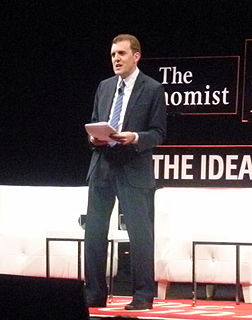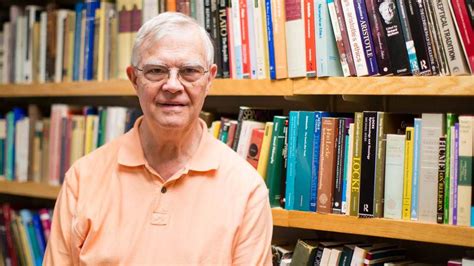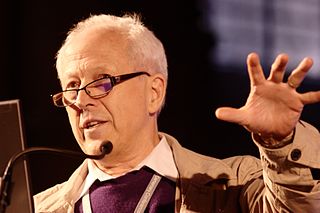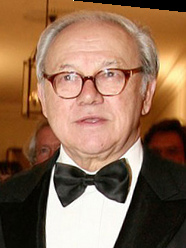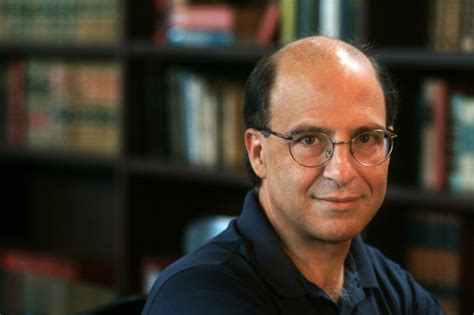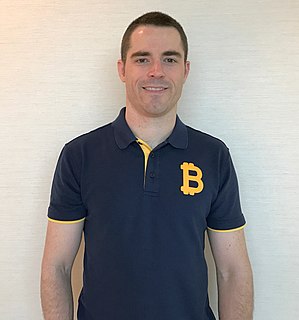Top 1200 Great Philosophical Quotes & Sayings
Explore popular Great Philosophical quotes.
Last updated on April 15, 2025.
If there is such a thing as philosophical progress, then why - unlike scientific progress - is it so invisible? Philosophical progress is invisible because it is incorporated into our points of view. What was torturously secured by complex argument comes widely shared intuition, so obvious that we forget its provenance.
Deng Xiaoping thought of himself as a great revolutionary and a great reformer. He had dismantled the Chinese communist management of the economy. In my next-to-last conversation with him, which was about six months before Tiananmen Square, he said to me that his aim would be the next phase to reduce the Communist Party to philosophical issues. And I said, "What's a philosophical issue?" And he said, "Well, like if we make an alliance with Russia." Given his view of Russia, that was not the likeliest thing that would ever happen.
In the first place a philosophical proposition must be general. It must not deal specially with things on the surface of the earth, or within the solar system, or with any other portion of space and time. . . . This brings us to a second characteristic of philosophical propositions, namely that they must be a priori. A philosophical proposition must be such as can neither be proved nor disproved by empirical evidence. . . . Philosophy, if what has been said is correct, becomes indistinguishable from logic as that word has now come to be used.
In elaborating how "philosophy by showing" works, and in defending the idea that literature and music can contribute to philosophical "showing", I am also doing something more standardly philosophical. But I view most of the book as an interweaving of philosophy and literary criticism. If that entails a broadening of a standard idea of philosophy, it's a broadening I'd like to see happen.
Quite early on, and certainly since I started writing, I found that philosophical questions occupied me more than any other kind. I hadn't really thought of them as being philosophical questions, but one rapidly comes to an understanding that philosophy's only really about two questions: 'What is true?' and 'What is good?'
The terminology of philosophical art is coercive: arguments are powerful and best when they are knockdown, arguments force you to a conclusion, if you believe the premisses you have to or must believe the conclusion, some arguments do not carry much punch, and so forth. A philosophical argument is an attempt to get someone to believe something, whether he wants to beleive it or not. A successful philosophical argument, a strong argument, forces someone to a belief.
In order to teach a course in the history of Western religious thought, I had to do a great deal of research in the writings within the Judaic and Christian traditions and I was astonished to find in those writings philosophical thought of great power and sophistication. These writings completely blew away all my opinions about what I had taken to be the irrationality or immaturity of religious ideas, opinions which were and still are fashionable in many intellectual and literary circles today.
Philosophical argument, trying to get someone to believe something whether he wants to believe it or not, is not, I have held, a nice way to behave towards someone; also it does not fit the original motivation for studying or entering philosophy. That motivation is puzzlement, curiousity, a desire to understand, not a desire to produce uniformity of belief. Most people do not want to become thought-police. The philosophical goal of explanation rather than proof not only is morally better, it is more in accord with one's philosophical motivation.
Teaching Plato in Palestine shows how philosophical thinking can illuminate important topics-in particular, the problem of finding ways to engage people with opposed ideologies in fruitful debate. The lively narratives, based on the author's experiences of working with various groups interested in using philosophical tools to clarify their thought and action, will engage a wide range of readers.
Science will always raise philosophical questions like, is any scientific theory or model correct? How do we know? Are unobserved things real? etc. and it seems to me of great importance that these questions are not just left to scientists, but that there are thinkers who make it their business to think as clearly and slowly about these questions as it is possible to. Great scientists do not always make the best philosophers.
I confess to being something of a philosophical butterfly. The world is full of so many interesting questions, and although my greatest passion is for some form of applied ethics, that leaves me with oodles of possibilities, many of which I have never had the time or opportunity to explore in great depth.
The concept of intuition is more often used in philosophical theorizing than is the concept of observation in scientific theorizing (proportionately). One reason is that there is (proportionately) more ostensible conflict of philosophical intuitions than there is ostensible conflict of scientific observations. So much for the use of a concept of intuition in philosophical theorizing.
Logical investigations can obviously be a useful tool for philosophy. They must, however, be informed by a sensitivity to the philosophical significance of the formalism and by a generous admixture of common sense, as well as a thorough understanding both of the basic concepts and of the technical details of the formal material used. It should not be supposed that the formalism can grind out philosophical results in a manner beyond the capacity of ordinary philosophical reasoning. There is no mathematical substitute for philosophy.
Philosophy is a necessary activity because we, all of us, take a great number of things for granted, and many of these assumptions are of a philosophical character; we act on them in private life, in politics, in our work, and in every other sphere of our lives -- but while some of these assumptions are no doubt true, it is likely, that more are false and some are harmful. So the critical examination of our presuppositions -- which is a philosophical activity -- is morally as well as intellectually important.
I would say I was a philosophical boy. Thoughts about 'identical stones' are the earliest philosophical thoughts I remember. But when I was a teenager I also thought about the more typical philosophical problems teenagers think about: the existence of god, the objectivity of morality, whether one can know that the external world exists.
I use biography, I use literary connections (as with Platen - this seems to me extremely helpful for appreciating the nuances of Mann's and Aschenbach's sexuality), I use philosophical sources (but not in the way many Mann critics do, where the philosophical theses and concepts seem to be counters to be pushed around rather than ideas to be probed), and I use juxtapositions with other literary works (including Mann's other fiction) and with works of music.
If you read philosophical texts of the tradition, you'll notice they almost never said 'I,' and didn't speak in the first person. From Aristotle to Heidegger, they try to consider their own lives as something marginal or accidental. What was essential was their teaching and their thinking. Biography is something empirical and outside, and is considered an accident that isn't necessarily or essentially linked to the philosophical activity or system.
I've always felt like we're all human beings and we're all basically given the tools to make whatever choices we want to make. How we treat other people. How we treat ourselves. Just the whole philosophy of that and the philosophical logic of that is that we're all capable of great acts of evil, and we're all capable of great acts of good.
Like Flannery O'Connor, McCorkle's genius is to give us both philosophical speculation and a riveting narrative filled with unforgettable characters. Great writing, poignancy, humor, wisdom-all are in abundance here. Jill McCorkle is one of the South's greatest writers; she is also one of America's.
Most artists, or at least most of the ones I know, deny having a philosophical outlook that they try to translate into their works. Some had thought of the work of Cezanne and others as being a 'painted epistemology.' But Cezanne himself denied this and Daniel-Henri Kahnwiler, the art critic and art dealer, insisted that none of the many painters he had known had a philosophical culture.
Philosophy aims at the logical clarification of thoughts. Philosophy is not a body of doctrine but an activity. A philosophical work consists essentially of elucidations. Philosophy does not result in 'philosophical propositions', but rather in the clarification of propositions. Without philosophy thoughts are, as it were, cloudy and indistinct: its task is to make them clear and to give them sharp boundaries.
Our new government is founded upon exactly the opposite idea; its foundations are laid, its corner- stone rests, upon the great truth that the negro is not equal to the white man; that slavery subordination to the superior race is his natural and normal condition. This, our new government, is the first, in the history of the world, based upon this great physical, philosophical, and moral truth.
The conduct of a man, who studies philosophy in this careless manner, is more truly sceptical than that of any one, who feeling inhimself an inclination to it, is yet so over-whelm'd with doubts and scruples, as totally to reject it. A true sceptic will be diffident of his philosophical doubts, as well as of his philosophical conviction; and will never refuse any innocent satisfaction, which offers itself, upon account of either of them.
My first degree was in mathematics. That was great, but it didn't help with many of the things that puzzled me. I became a philosopher because I wanted to understand everything, especially those things that didn't make sense. And that has continued to be my philosophical motivation. That's one reason I have such a roving philosophical eye - once I have figured out a philosophical topic to my satisfaction, I find myself moving on to new problems.
Paul Davies takes us on a logically and rhetorically compelling modern search for human agency. This outstanding analysis, well informed by naturalistic views of our evolved affective nature, is the kind of philosophical work that is essential for a field to move forward when ever-increasing findings from modern science are inconsistent with traditional philosophical arguments. This book is for all who wish to immerse themselves in the modern search for free will. It is steeped in the rich liqueur of current scientific and philosophical perspectives and delusions.
Poetry is a bad medium for philosophy. Everything in the philosophical poem has to satisfy irreconcilable requirements: for instance, the last demand that we should make of philosophy (that it be interesting) is the first we make of a poem; the philosophical poet has an elevated and methodical, but forlorn and absurd air as he works away at his flying tank, his sewing-machine that also plays the piano.











